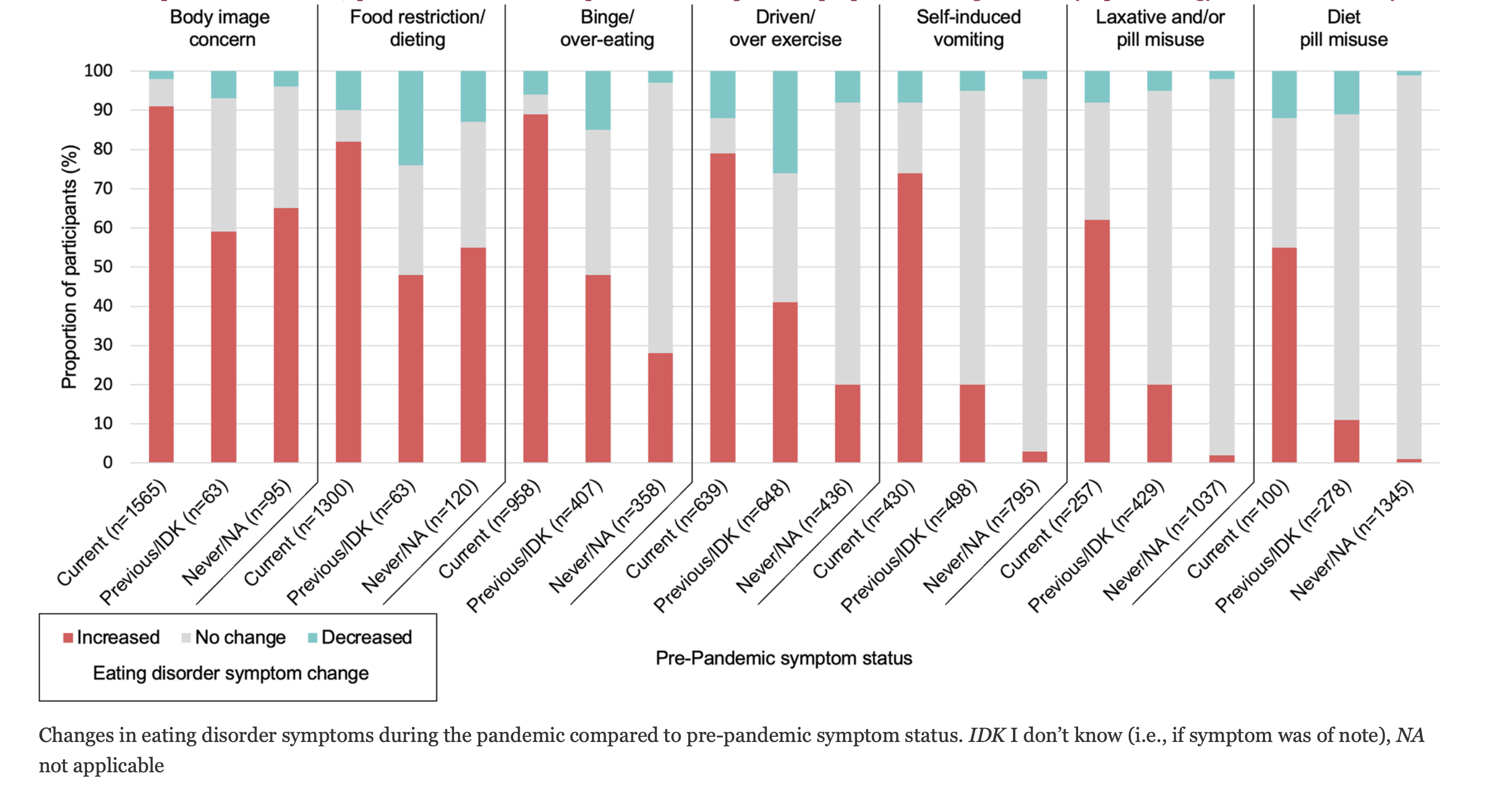Subscribe to our newsletter!
© 2026 InsideOut
InsideOut acknowledges the tradition of custodianship and law of the Country on which the University of Sydney and Charles Perkins Centre campus stands. We pay our respects to those who have cared and continue to care for Country. We are committed to diversifying research and eliminating inequities and discrimination in healthcare. We welcome all people regardless of age, gender, race, size, sexuality, language, socioeconomic status, location or ability.

InsideOut Institute's latest research reveals a significant increase in eating disorder symptoms during the first major COVID-19 wave in Australia, coupled with a widespread failure to access treatment.
InsideOut researchers tracked 1,723 people with eating disorder symptoms over the first major COVID-19 wave (July - October 2020), which included Victoria’s major lockdown - making it one of the largest observational studies to capture the impact of the pandemic in Australia.
The study has been published in the Journal of Eating Disorders.
The findings revealed that, compared to before the pandemic, 88% of the participants had experienced an increase in body image concerns, 74% had experienced an increase in food restriction/dieting, 66% in binge eating, 49% in driven or over-exercise and 25% in self-induced vomiting.

*Figure: Changes in eating disorder symptoms during the pandemic compared to pre-pandemic symptoms (taken from the study published in the Journal of Eating Disorders).*
Lead researcher Dr Jane Miskovic-Wheatley says that the main influences associated with worsening eating disorder symptoms included changes in daily routine, restricted access to support people and changes to treatment, and exposure to news coverage and social media.
The re-emergence and first-time emergence of eating disorder symptoms was also experienced by a number of participants.
“The COVID-19 pandemic public health response, while necessary, has had a detrimental impact on the mental health of people with an eating disorder,” Dr Miskovic-Wheatley says.
“We were able to capture the beginning, middle and end of the first significant wave in Australia, including Victoria’s main lockdown, and our concern is that if these waves keep continuing, the impact might become more and more pronounced.”
“Our study also shows an increase in other factors associated with mental health, such as reduced quality of sleep, increased use of alcohol, increased guilt buying food, increased worry and fear, and decreased confidence and hopefulness."
“I don’t want us to underestimate what the long-term impacts might be for people affected by eating disorders – this is something we are currently investigating.”
The study further revealed alarmingly low diagnosis and treatment rates. While nearly all participants (96%) reported experiencing active eating disorder symptoms, only half were engaged in treatment.
In addition, of those participants found to have an eating disorder of clinical significance, 40% had never been formally diagnosed.
“These findings show a great need to identify and support people in the community experiencing eating disorder symptoms,” Dr Miskovic-Wheatley says.
InsideOut psychologist Rachel Simeone says that even though many jurisdictions are now starting to open up, clients with eating disorders are continuing to struggle.
“For many people experiencing an eating disorder it will take a lot of time to recover from the hit that the COVID pandemic and associated health measures have delivered over the past two years. We cannot assume that eating disorders will simply resolve when restrictions ease.”
“This really speaks to the need for greater awareness of eating disorders, in all settings – in the home, the community, at schools and sports, and in healthcare settings, such as GPs. It is everyone's responsibility to be aware of the signs and symptoms, to aid early detection efforts and support individuals to get support and treatment as early as possible.”
These findings further highlight the timeliness of the recent Australian National Research and Translation Strategy for Eating Disorders 2021-2031, funded by the Federal Government and developed by InsideOut, in collaboration with experts and peak bodies from across Australia.
The Strategy highlights 10 research priority areas, which include risk factors, prevention and early identification, with future research to be focused on these important domains.
(Cover photo by Emma Shulzhenko on Unsplash)